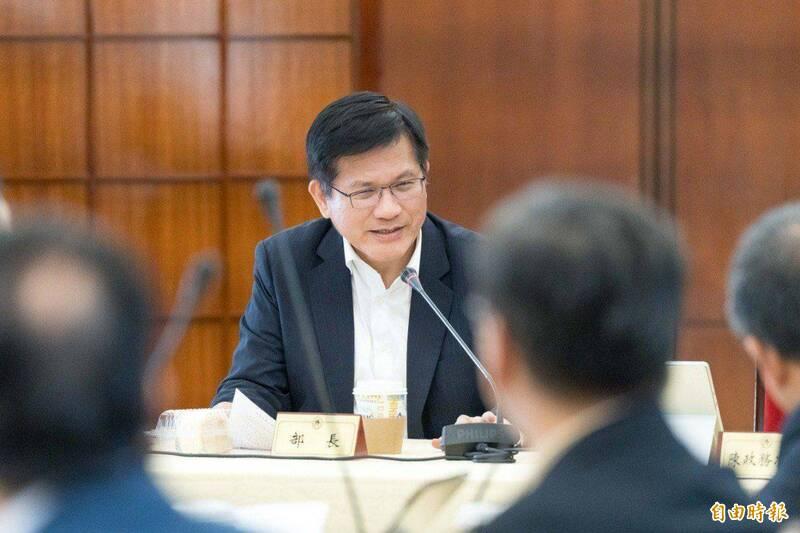Three government bodies today said that China is seeking to project an illusion of "long-arm jurisdiction" over Taiwan, in a bid to sow divisions and fear among Taiwanese.
That approach is evident in China's efforts to prosecute Taiwanese in absentia for what Beijing calls secessionist activities, officials of the National Security Bureau (NSB), Mainland Affairs Council (MAC) and Ministry of Foreign Affairs (MOFA) said during a legislative session.
They were responding to lawmakers’ questions on what actions could be taken in response to a recent report that Taiwan’s Democratic Progressive Party (DPP) Legislator Puma Shen (沈伯洋) was being investigated by China for promoting “Taiwan independence.”

Photo courtesy of Ministry of Foreign Affairs
According to the report published on Tuesday by China’s state-run Xinhua News Agency, the lawmaker, who is in Taiwan, is being investigated by the Chongqing Municipal Public Security Bureau on allegations of "secession-related" criminal activities, including launching the civil defense organization Kuma Academy.
The investigation is being carried out under the terms of the Criminal Law of the People's Republic of China (PRC) and a set of judicial guidelines from last year on how to penalize "Taiwan independence separatists," the report said.
Today, MOFA, NSB and MAC officials told legislators that such actions by China are meant to "create the illusion of long-arm jurisdiction over Taiwan."
China's aim is to "sow divisions and instill fear" among the people of Taiwan and to further isolate Taiwan on the international stage, the officials said during the hearing in the Foreign Affairs and National Defense Committee.
Noting that China has extradition treaties with more than 60 countries, Minister of Foreign Affairs Lin Chia-lung (林佳龍) said it is not unlikely that China would exert pressure on those countries to deport Taiwanese deemed as criminal suspects to China.
In addition to its "trial in absentia" actions, the PRC could also request that Interpol issue a "red notice" for the arrest of Taiwanese listed as wanted by China, with a view to extradition, Lin said.
In view of those presumptive threats, MOFA has asked its overseas missions to strengthen communication with the governments, judicial divisions and law enforcement authorities of the host countries, he said.
MOFA is also expanding its emergency assistance to Taiwanese travelers, and enhancing intelligence sharing with friendly countries, Lin added.
Meanwhile, MAC Deputy Minister Shen Yu-chung (沈有忠) said his agency has issued a travel warning for China, urging Taiwanese to be on high alert over their personal safety.
Since January last year, 233 Taiwanese have gone missing, been detained or interrogated or had their personal liberties restricted in China, he said.
Shen, who was banned in October last year from entering China, Hong Kong or Macau and listed as a "stubbornly pro-Taiwan independence" person, said he was being investigated purely for political reasons.
It is likely that ordinary Taiwanese would face similar charges in the future, Puma Shen said during the hearing, adding that extradition treaties in most countries are usually implemented for the return of suspects or convicts in major criminal cases.
In response, Shen Yu-chung told the DPP lawmaker that his agency is considering tightening entry permit requirements for Chinese officials in charge of Taiwan affairs, given China's actions of targeting a Taiwanese politician.

The manufacture of the remaining 28 M1A2T Abrams tanks Taiwan purchased from the US has recently been completed, and they are expected to be delivered within the next one to two months, a source said yesterday. The Ministry of National Defense is arranging cargo ships to transport the tanks to Taiwan as soon as possible, said the source, who is familiar with the matter. The estimated arrival time ranges from late this month to early next month, the source said. The 28 Abrams tanks make up the third and final batch of a total of 108 tanks, valued at about NT$40.5 billion

Two Taiwanese prosecutors were questioned by Chinese security personnel at their hotel during a trip to China’s Henan Province this month, the Mainland Affairs Council (MAC) said yesterday. The officers had personal information on the prosecutors, including “when they were assigned to their posts, their work locations and job titles,” MAC Deputy Minister and spokesman Liang Wen-chieh (梁文傑) said. On top of asking about their agencies and positions, the officers also questioned the prosecutors about the Cross-Strait Joint Crime-Fighting and Judicial Mutual Assistance Agreement, a pact that serves as the framework for Taiwan-China cooperation on combating crime and providing judicial assistance, Liang

A group from the Taiwanese Designers in Australia association yesterday represented Taiwan at the Midsumma Pride March in Melbourne. The march, held in the St. Kilda suburb, is the city’s largest LGBTQIA+ parade and the flagship event of the annual Midsumma Festival. It attracted more than 45,000 spectators who supported the 400 groups and 10,000 marchers that participated this year, the association said. Taiwanese Designers said they organized a team to march for Taiwan this year, joining politicians, government agencies, professionals and community organizations in showing support for LGBTQIA+ people and diverse communities. As the first country in Asia to legalize same-sex

MOTIVES QUESTIONED The PLA considers Xi’s policies toward Taiwan to be driven by personal considerations rather than military assessment, the Epoch Times reports Chinese President Xi Jinping’s (習近平) latest purge of the Chinese People’s Liberation Army (PLA) leadership might have been prompted by the military’s opposition to plans of invading Taiwan, the Epoch Times said. The Chinese military opposes waging war against Taiwan by a large consensus, putting it at odds with Xi’s vision, the Falun Gong-affiliated daily said in a report on Thursday, citing anonymous sources with insight into the PLA’s inner workings. The opposition is not the opinion of a few generals, but a widely shared view among the PLA cadre, the Epoch Times cited them as saying. “Chinese forces know full well that